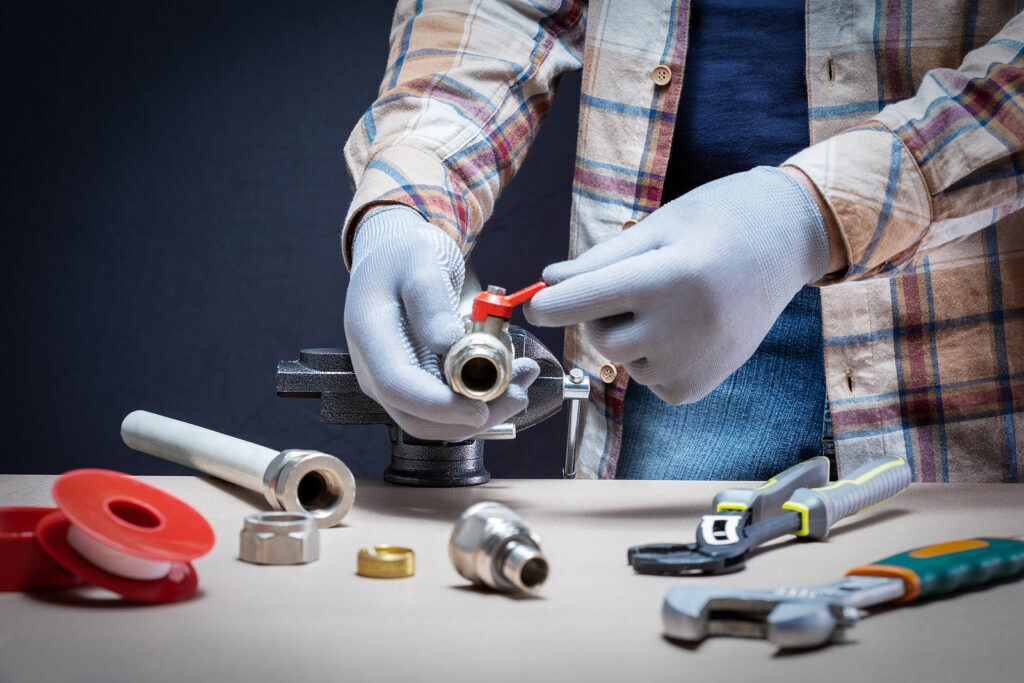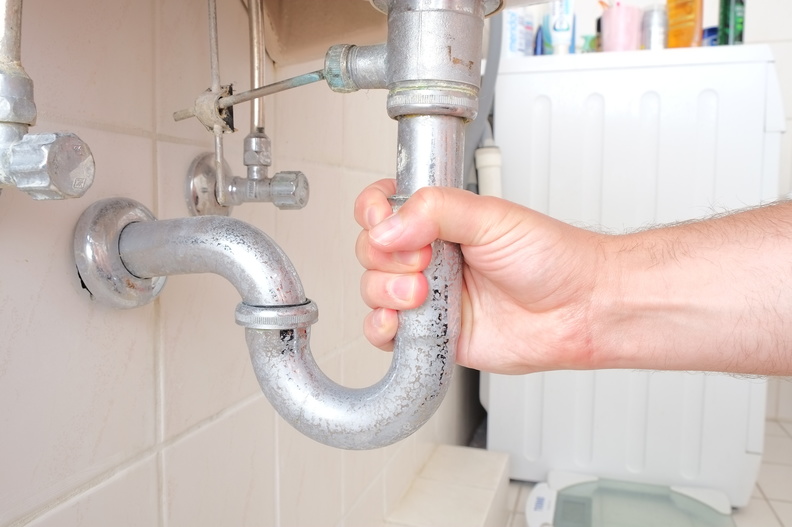Emergency Tips: What to Do Until Help Arrives
Emergency Tips: What to Do Until Help Arrives
Blog Article
What are your thoughts regarding What to Do While Waiting for an Emergency Plumber?

Plumbing emergencies can strike at any moment, causing tension and prospective damage to your home. Whether it's a burst pipe, a clogged drain, or a dripping tap, recognizing just how to handle the circumstance up until an expert plumbing arrives can save you from more difficulties. This short article offers important emergency pipes pointers to assist you reduce damage and regain control throughout a pipes dilemma.
Shut off the Supply Of Water
The initial step in any kind of plumbing emergency is to shut off the water. For local problems, such as a leaking tap or bathroom, turn off the valve near the component. In the case of a major leakage or ruptured pipe, situate your home's major water shut-off valve and turn it off quickly. Understanding the place of these valves ahead of time can save valuable time throughout an emergency.
Shut Off Your Hot Water Heater
In specific emergencies, such as a ruptured pipe, it's wise to shut down your water heater. This protects against overheating or damages to the system when water stops moving. Turn off the power supply to the hot water heater (electric or gas) and allow it cool off to stay clear of prospective hazards.
Momentarily Stop a Ruptured Pipe
A ruptured pipe can lead to considerable water damage in mins. To mitigate the concern:
Call a professional plumbing technician quickly to deal with the trouble permanently.
Have an Emergency Situation Plumbing Set
Prepare a standard plumbing emergency situation kit to deal with small issues successfully. Your package ought to consist of:
Having these devices available can make a considerable distinction in your ability to handle emergency situations.
Unclog Drains Safely.
A blocked drainpipe can be an irritating and messy problem. Below's just how to tackle it:.
If these methods don't work, prevent making use of too much pressure, as it may worsen the blockage.
Handle Overflowing Toilets.
An overflowing bathroom can trigger prompt disorder. Below's what you should do:.
Address Small Leakages with Short-lived Solutions.
Tiny leakages can swiftly end up being considerable problems if left unchecked. Use these short-lived solutions up until expert help arrives:.
While these fixes aren't irreversible, they can assist reduce water loss and damages.
Take Care Of Frozen Water Lines Thoroughly.
In colder environments, frozen pipes are an usual emergency. If you suspect an icy pipe:.
Know When to Call a Professional.
While quick fixes can assist temporarily, particular plumbing concerns need immediate expert attention. Call a plumbing professional if:.
Without delay getting in touch with a specialist ensures the concern is dealt with properly and protects against further issues.
Prevent Additional Damages.
Taking quick activity to decrease damage can conserve you money and time over time. Below's how:.
Verdict.
Pipes emergencies can be overwhelming, however with the appropriate knowledge and tools, you can handle the scenario effectively until assistance gets here. By switching off the water, addressing little leakages, and making use of short-lived solutions, you can decrease damage and keep your home safe. Keep in mind, these pointers are temporary services; always seek advice from a qualified plumber to handle the root cause of the issue. Preparation and fast reasoning are your finest allies in any kind of pipes emergency situation.
Expert Tips for Emergency Plumbing Repairs
Plumbing emergencies can be incredibly stressful and inconvenient. Whether it’s a burst pipe, a clogged drain, or a leaky faucet, these common plumbing emergencies need immediate attention to prevent further damage to your home. But before you panic, it’s important to understand the basics of plumbing repairs and the steps you can take to address these emergencies. In this article, we will share some expert tips to help you navigate through these situations and minimize potential water damage.
Identifying Common Plumbing Emergencies
Leaky pipes and faucets Clogged drains and toilets Burst pipes Low water pressure Water heater problems Essential Tools for Plumbing Repairs
Plunger: Useful for unclogging toilets and drains Adjustable wrench: Needed for tightening or loosening nuts and bolts Pipe wrench: Ideal for gripping and turning pipes Tape measure: Necessary for accurate pipe measurements Plumber’s tape: Helps create watertight seals Understanding Emergency Plumbing Services
Emergency plumbing services are designed to provide immediate assistance for unexpected plumbing issues that can cause significant damage to your home, business, or health. These services are typically available 24/7 and are staffed by experienced plumbers who can quickly diagnose and repair a wide range of plumbing problems.
When a plumbing emergency strikes, time is of the essence. Whether it’s a burst pipe flooding your basement or a gas leak posing a serious risk, emergency plumbing services ensure that help is just a phone call away. These professionals are equipped with the tools and expertise to handle any situation, minimizing damage and restoring your plumbing system to proper working order.
What Constitutes a Plumbing Emergency?
Burst pipes or water supply lines: These can cause extensive water damage and need immediate repair to prevent flooding. Gas leaks or suspected gas leaks: Gas leaks are extremely dangerous and require prompt attention to avoid potential explosions or health hazards. Sewer backups or overflows: These can lead to unsanitary conditions and significant property damage. Clogged drains or toilets causing water to overflow: Overflowing water can damage floors, walls, and other structures. Leaks or water damage causing structural damage: Persistent leaks can weaken the structural integrity of your home or business. No hot water or heating: A lack of hot water can be more than an inconvenience, especially in colder months. Common Causes of Plumbing Emergencies
Aging or corroded pipes: Over time, pipes can deteriorate, leading to leaks or bursts. Improperly installed or maintained plumbing fixtures: Faulty installations or lack of maintenance can result in unexpected failures. Tree roots or other debris infiltrating your sewer line: Roots can grow into pipes, causing blockages and backups. Frozen pipes or water supply lines: In colder climates, pipes can freeze and burst, leading to significant water damage. High water pressure or sudden changes in water pressure: Excessive pressure can strain pipes and fixtures, causing them to fail. Natural disasters such as floods or earthquakes: These events can disrupt your plumbing system and cause severe damage. Steps to Minimize Water Damage
Locate the water shut-off valve: Knowing where the valve is can help you quickly cut off the water supply to the affected area. Turn off the water heater: If there’s a risk of water coming into contact with the heating element, make sure to turn off the water heater to avoid potential accidents. Open faucets and drain pipes: By opening faucets and drain pipes, you can relieve pressure and empty any standing water. Collect and contain water: Use towels, buckets, or bins to collect water and prevent it from spreading to other areas of your home. https://leecountyplumbingandwellservice.com/expert-tips-for-emergency-plumbing-repairs/

Do you enjoy reading about Expert Tips for Managing a Plumbing Emergency Until Help Arrives? Create feedback below. We'd be pleased to listen to your feelings about this page. We hope to see you back again in the future. Don't hesitate to take the time to share this entry if you liked it. Many thanks for going through it.
Information Report this page